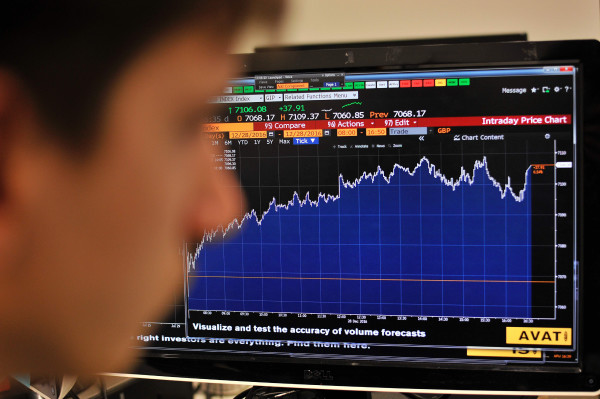

Industry experts are divided on whether to retain or ditch UK equity positions amid ongoing political uncertainty caused by Brexit.
Investors pulled £1.2bn from UK equity funds in July as the likelihood of a no deal Brexit increased with Boris Johnson taking over as UK prime minister.
Political wrangling due to Brexit has also increased with the prospects of a general election.
So should investors flee UK equities or stay put?
Invest in other equities?
David Holohan, senior equity investment strategist at Mediolanum International Funds, said: “Investors who have significant exposure to UK equities should ensure that they have pivoted their exposure towards international companies that are listed in the UK as opposed to domestically focused companies, should they fear a Hard Brexit scenario playing out.”
Mr Holohan added international companies would benefit from a weakening of sterling in such a scenario while their core business operations would benefit from greater exposure to international geographies rather than the UK domestic economy.
Chris Peel, chief investment officer at Tavistock Wealth also recommended moving equity exposure overseas.
He said: “UK equities are cheap enough to warrant that you will be able to buy them in the event of a no deal Brexit and a deal."
But Ricky Chan, chartered financial planner at IFS Wealth and Pensions, disagreed that UK equities are riskier than other global stocks.
He said if clients find themselves overly exposed to UK equities, which is not uncommon for older legacy pensions that have a lot of UK funds, then they should first re-assess the time horizon they have until they require access to their investments and pensions and the overall objective of the investment.”
Mr Chan added investors may be better off ditching equities all together, not just UK ones, should they require imminent access to their funds.
“If they still have well over five years until they need access to their money, then they could look at adding funds from other economies, such as US, Europe, or Asia, whilst maintaining a suitable level of risk for them. “
But Mr Chan warned: “It’s important to remember that these other economies are not without its own risks and political problems too, and arguably slightly riskier given that there is currency risk too (as we spend money in sterling).”
Sterling
However, Mr Peel suggested that investors should hedge their sterling exposure, rather than significantly change their UK equity positions.
“Sterling does not look like it wants to trade lower, US equities are better with Fed reducing rates. Go long-sterling.”
Mr Chan highlighted that had investors avoided UK equities during the Brexit referendum they would have missed out on significant capital gains.
“When the Brexit referendum happened on 23rd June 2016, the FTSE 100 index was at 6338 and the FTSE 250 index was at 17,333.
"With some ups and downs along the way, they’re now valued at 7,314 and 20,054, so this implies that had investors avoided UK equities, they’d have missed out on the growth in the UK.”
He added: “We still do not know what Brexit means and what trade deal with EU will be negotiated.”
saloni.sardana@ft.com





